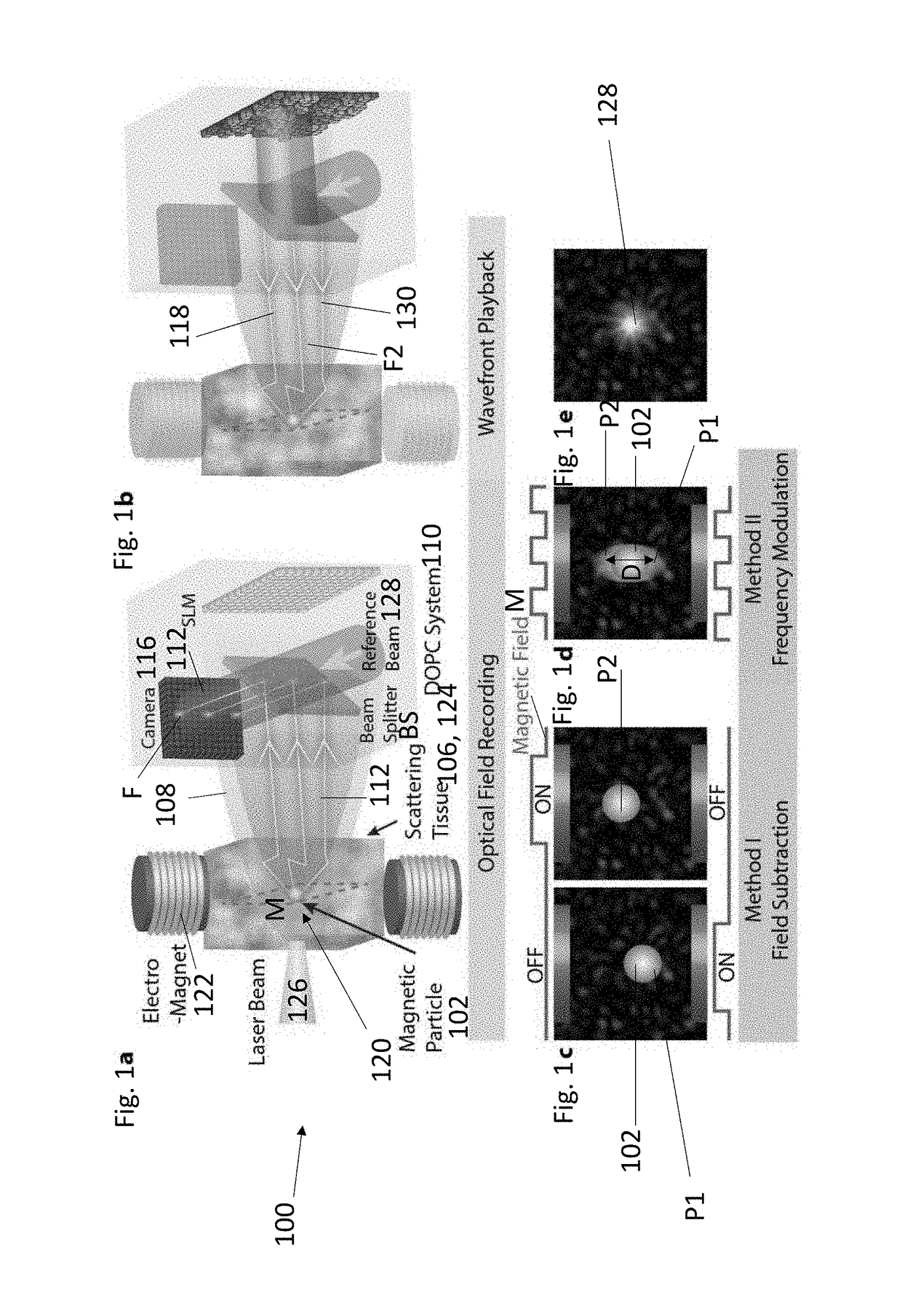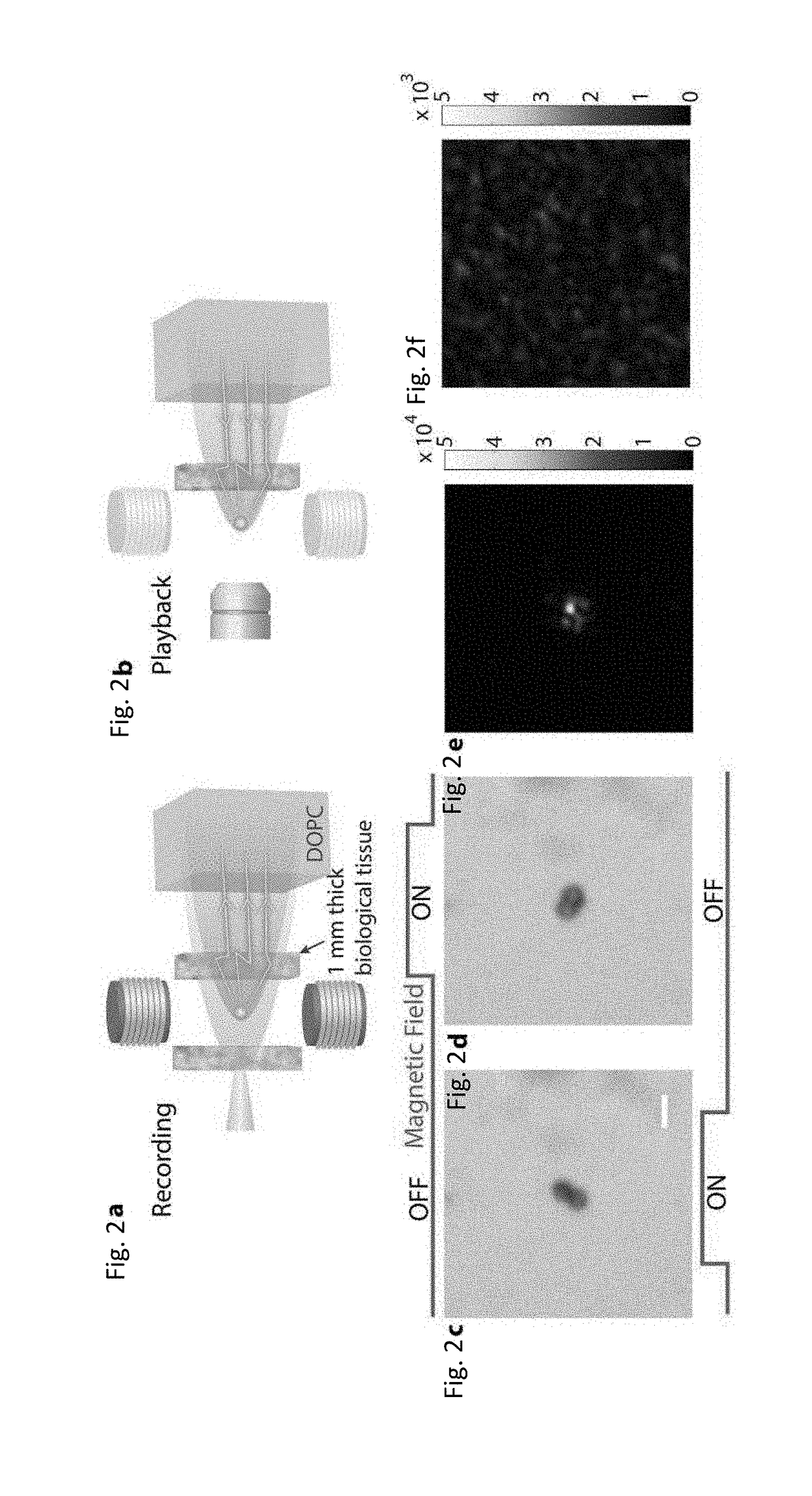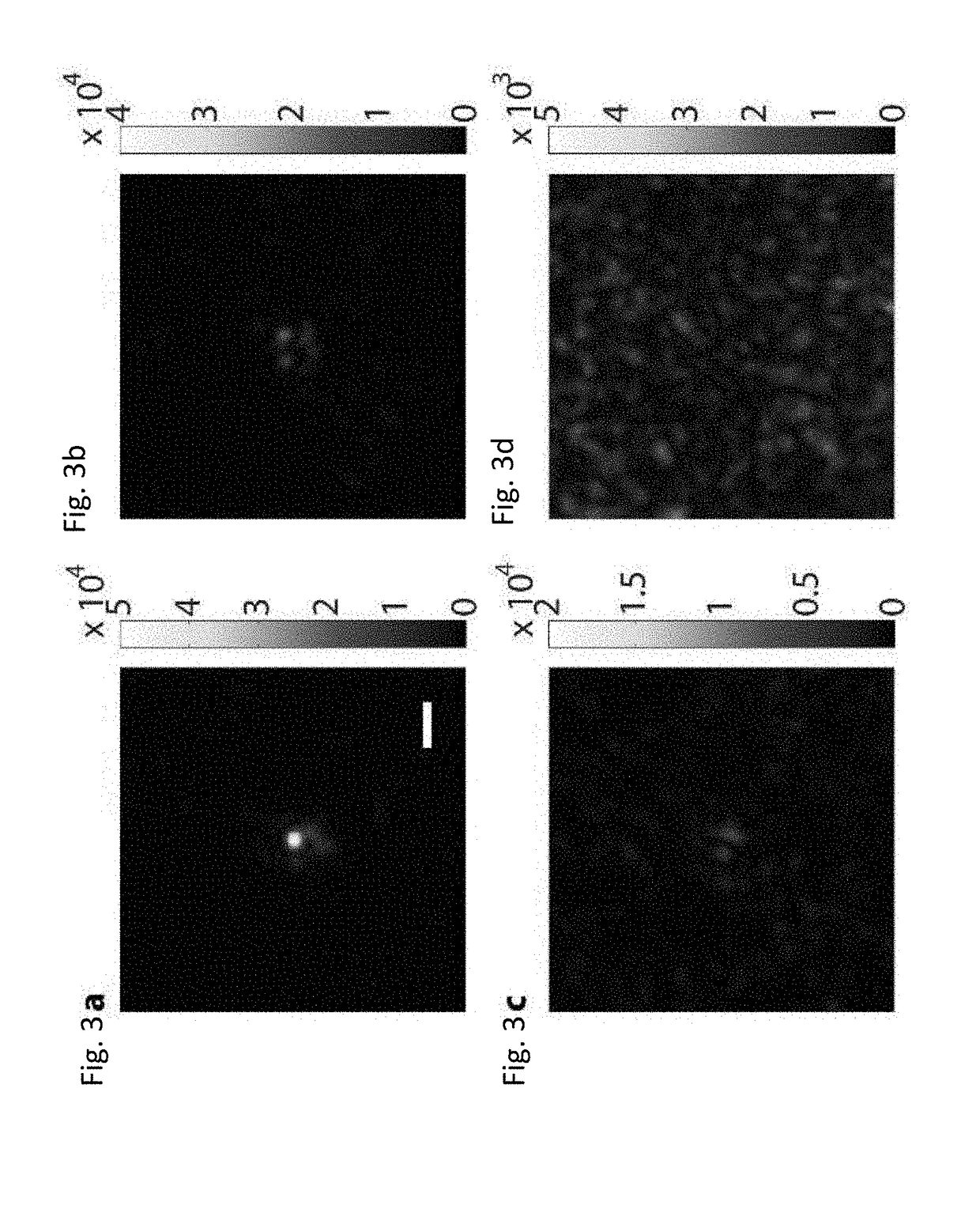Focusing light inside scattering media with magnetic particle guided wavefront shaping
a scattering medium and magnetic particle technology, applied in the field of imaging and focusing electromagnetic radiation in a scattering medium, can solve the problems of low coherence of fluorescence, inaccessible target planes inside the scattering medium, and conventional optics of focusing ligh
- Summary
- Abstract
- Description
- Claims
- Application Information
AI Technical Summary
Benefits of technology
Problems solved by technology
Method used
Image
Examples
embodiment 15
[0120]16. The apparatus 100 of embodiment 15, wherein the in vivo decorrelation time is reduced to at least 50 milliseconds using an immobilization approach.
[0121]17. The apparatus 100 of one or any combination of the previous embodiments, wherein the detector 110, 116 has a frame rate of greater than 20 Hz, the spatial light modulator SLM has response rate of greater than 20 Hz, and the input electromagnetic radiation 126 has an intensity up to 200 mW / cm2 (e.g., for tissue safety).
[0122]18. The apparatus 100 of one or any combination of the previous embodiments, wherein the phase conjugate mirror comprises a nonlinear optical device (e.g., photorefractive crystal, polymer film).
example
[0123 Method of Operation
[0124]FIG. 12 illustrates a method for irradiating a scattering medium 124.
[0125]Block 1200 represents applying a magnetic field to a magnetic particle 102 in a scattering medium 124 so that the magnetic field moves the magnetic particle 102 in the scattering medium 124. Examples of scattering media include, but are not limited to, biological tissue.
[0126]Block 1202 represents irradiating the magnetic particle 102 in the scattering medium 124 with electromagnetic radiation 126, wherein the electromagnetic radiation scatters from the magnetic particle 102 so as to form scattered electromagnetic radiation 112.
[0127]Block 1204 represents forming a recording of the scattered electromagnetic radiation 112112 on a detector 110, 116 or a phase conjugate mirror. In one or more examples, the recording comprises an interference pattern recording interference between a reference beam 140 and the scattered electromagnetic radiation 112 on a camera or a phase conjugate m...
PUM
 Login to View More
Login to View More Abstract
Description
Claims
Application Information
 Login to View More
Login to View More - R&D
- Intellectual Property
- Life Sciences
- Materials
- Tech Scout
- Unparalleled Data Quality
- Higher Quality Content
- 60% Fewer Hallucinations
Browse by: Latest US Patents, China's latest patents, Technical Efficacy Thesaurus, Application Domain, Technology Topic, Popular Technical Reports.
© 2025 PatSnap. All rights reserved.Legal|Privacy policy|Modern Slavery Act Transparency Statement|Sitemap|About US| Contact US: help@patsnap.com



